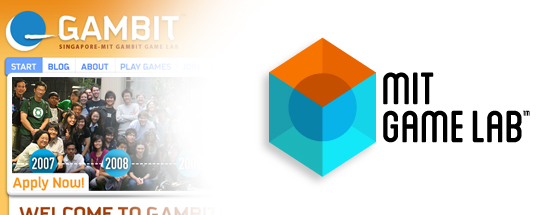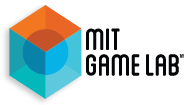Transitions…

Some ado as been made about our transition from the Singapore-MIT GAMBIT project of the past six years to our new group, the MIT Game Lab. There have been some misconceptions about our transition, the nature of the original project, and what has become of those involved. If you’ve found your way to this website and this post, you probably have some sense of what the original project was, who we were, and some of what we are experiencing as we shift to our new identity.
I want to emphasize that when I think of the Singapore-MIT GAMBIT Game Lab, I usually frame it in terms of who was involved, as this was the project’s greatest strength. GAMBIT brought together an amazing assemblage of game professionals, game studies academics, students, researchers, and artists, in two continents! Our identity was shaped by these great people. Beyond those who officially worked with the lab, GAMBIT was also a site for collaboration, play, and ideation for the greater northeast game industry. We hosted tournaments, conferences and un-conferences, game jams and marathons, parties small and large, and a bevy of more informal gatherings.
This emphasis on community will not be lost with our transition to the new MIT Game Lab. Most who worked at GAMBIT have stayed on in some capacity with the new project. We are working on some events, many like the ones we hosted as GAMBIT, and certainly check back here for information about those. We started by co-hosting the Boston Festival of Indie Games with Boston Indies and bringing in a number of our past collaborators for our first annual Symposium this past September, “Games in Everyday Life”. Our next big event is to host the Global Game Jam in January. This year, we’re partnering with our sister project at CMS, the MIT Education Arcade, as well as the Learning Games Network, to help participants make entertaining games for impact, including games for learning and games for social change.
Our new identity will only be as strong as the connections and the community we maintain through its existence, with research partners, the broad game academic community, and friends, and we will continue to work hard to nurture these relationships.
A first step in this process is to begin regularly publishing to our blog. We have a weekly plan with three posts, on Monday, Wednesday and Friday respectively. Here’s how they will play out:
Monday: We will start your work week with a brief thought piece written by a member of the staff, a student, or a friend of the lab. These will be shorter, digestible provocations, intended to give a glimpse at issues we’ve been thinking about.
Wednesday: For the mid-week post we’ll let you know what our Friday Games event theme will be. These are open to the public, and we encourage everyone who can to attend in person or view our livestream at Twitch.TV. The event is held most Fridays at 4pm.
Friday: To ring in the weekend, we’ll give you a selection of links to locations on the web we think might be of interest to our audience. This will be a carefully curated selection, and given our diverse interests you can expect links that go beyond the usual games blogerati (though you’ll see some of those too).
We hope you’ll come back to read our blog, and we encourage you to contact us with any thoughts.
